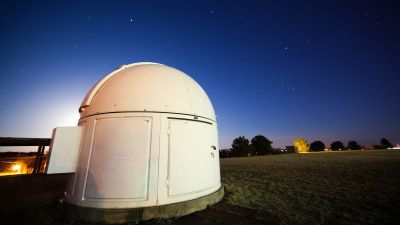
Pre-Optometry
If you want to make a difference in the lives of others, you won’t find a better opportunity than through optometry. As an optometrist, you will focus on the structure, function and disorders of the eye, helping people regain and retain their sight.
Most optometrists work in general practice, but you will also have the opportunity to specialize in an area such as
- contact lenses,
- geriatrics,
- low vision services,
- occupational vision,
- pediatrics,
- sports vision or
- vision therapy.
You might also choose to become an ophthalmologist, a licensed medical doctor that practices medicine and performs surgeries, or an optician, making eyeglasses, contacts and lenses and helping fit them to patients.
Help patients see better and improve their quality of life!
Program Highlights
WHY STUDY PRE-OPTOMETRY AT CONCORDIA?
As part of the pre-optometry program at Concordia University, Nebraska, you will take courses in anatomy, chemistry and physiology, as well as health and wellness classes that will help prepare you to continue your education to become an optometrist.
At Concordia, you have the opportunity to work with local hospitals, clinics and optometry offices in hands-on internships and volunteer experiences. Our state-of-the-art science facilities allow you the workspace you need to become proficient in laboratory procedures and scientific principles, so you can be prepared to earn your graduate degree and ultimately find a career in optometry.
Accreditation
Concordia University, Nebraska is accredited by the Higher Learning Commission, a regional accreditation agency recognized by the U.S. Department of Education.
Degree Goals
A pre-optometry program graduate from Concordia University, Nebraska will be able to:
- Perform routine laboratory procedures accurately.
- Communicate effectively, both orally and in writing.
- Problem-solve, troubleshoot and interpret scientific results and use statistical approaches when evaluating data.
- Operate and maintain laboratory equipment, utilizing appropriate quality control and safety procedures.
Career Outcomes
Optometrist
- Examine eyes for vision and health problems
- Prescribe eyeglasses and contact lenses, provide patients with vision therapy and help treat eye problems and certain eye diseases
Ophthalmologist
- Specialize in eye and vision care
- Perform eye exams, treat eye diseases, prescribe medications and perform eye surgery
Optician
- Fit and sell eyeglasses or contact lenses
- Work with an optometrist or ophthalmologist as part of a patient’s eye care team
FAQs
What undergraduate courses should I take to help prepare me for optometry school?
You can major in whatever program you are passionate about, if you plan to apply for optometry graduate school. While admissions requirements for optometry schools vary, you should take at least a year of biology, chemistry, organic chemistry, general physics and microbiology, along with your humanities requirements.
Related Programs

Biology
With a degree in biology from Concordia Nebraska, you will be prepared to begin a career in the biological sciences right away, or to continue your education in graduate, medical, dental or veterinary school. As a biology major at Concordia, you learn essential skills such as time management and mastering complex material, as well as studying more in-depth topics such as microbiology, human anatomy and immunology to give you the knowledge you need to be successful in the field of biology.

Chemistry
A degree in chemistry from Concordia University, Nebraska expands your understanding of general chemistry and gives you the practical, hands-on experience you need to continue a career in chemistry after graduation. Your classroom and chemistry lab experience will help you on your journey to use your passion for chemistry to serve in healthcare, industry, research and more.

Physical Science
A degree in physical science from Concordia University, Nebraska will give you an interdisciplinary background in the physical sciences including physics, chemistry and math. Many students choose a physical science major as a broad-based education because they want to teach high school science, chemistry or physics, and a bachelor’s degree in physical science can help equip you with the comprehensive physical science skills you need to educate your future students.
1 Recent graduates attending graduate school or employed within six months of graduation.